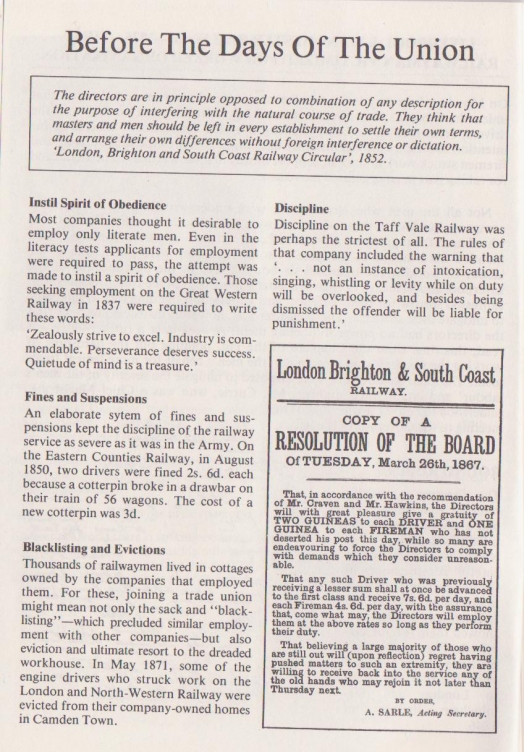Before the Days of the Union
Resource Type: Image | Posted on 9th December 2011 by Liam Physick
This page sums up what conditions were like for railway workers before trade unions were formed. It begins with a circular from the London, Brighton and South Coast Railway in 1852, which makes the employers’ hard-line attitude clear: “The directors are in principle opposed to combination for any description for the purpose of interfering with the natural course of trade. They think that masters and men [note the view of railway workers as servants - in those days, “men” could mean “servants”] should be left in every establishment to settle their own terms, and arrange their own differences without foreign [a word impyling that trade unions are un-British] interference or dictation.” The pamphlet explains the strict discipline that existed on the railways, with dismissal, blacklisting, eviction from railway cottages and “ultimate resort to the dreaded workhouse” in store for anyone who attempted to form a union, as happened in Camden Town in 1871 following a drivers’ strike on the London and North Western Railway. The Taff Vale Railway (where the famous 1900 strike took place, leading to a House of Lords ruling that unions were liable for losses incurred during a strike) went so far as to ban “singing, whistling or levity while on duty”, warning of “punishment” in addition to dismissal of anyone breaking that rule. Finally, we see a poster from the LBSCR, issued during a strike on Tuesday 26th March 1867, rewarding blacklegs, condemning those who “are endeavouring to force the Directors to comply with demands which they consider unreasonable” and giving the strikers until the following Thursday to return to work without fear of dismissal
Categorised under: Work & Industry

Comments